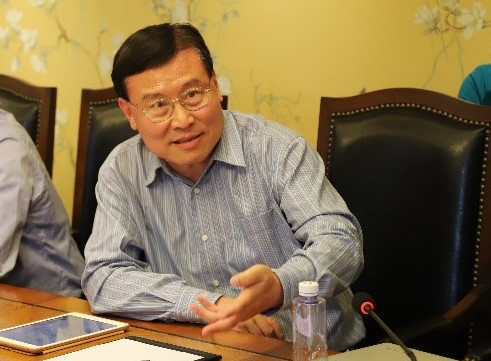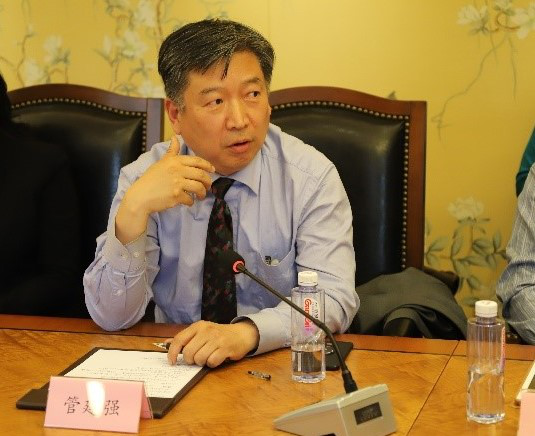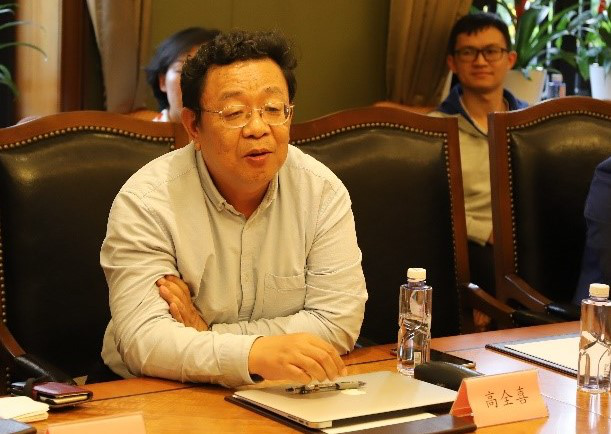In the afternoon of May 10, Shanghai Jiaotong University successfully held the high-end dialogue on "Comparison of Trade Friction between China and the United States - Thinking about the Future World Economic, Trade and Financial Order", the second part of the "Lecture Series on Law and Economy in East Asia", at Villa 23, Zhongxing Meihua Estate. This forum invited Mr. Dedi Liren, the former chairman of CITIC Securities International, a senior researcher of the Japanese API think tank, the executive director of CIDEG of Tsinghua University, and a researcher as the keynote speaker, Mr. Zha Daojiong, a professor of the School of International Relations and the Institute of Oceanology of Peking University, and a famous Chinese expert on economic security issues, as the reviewer, and Professor Ji Weidong, director of the Japan Research Center of Shanghai Jiaotong University, as the moderator. At the same time, Mr. Xu Jilin, a professor of the History Department of East China Normal University, Mr. Gao Quanxi, a chair professor of Kaiyuan School of Law of Shanghai Jiao Tong University, Mr. Guan Jianqiang, a professor of international law at East China University of Political Science and Law, and Mr. Jia Hao, deputy director of the Research Center of the European American Homecoming Association, participated in the meeting.
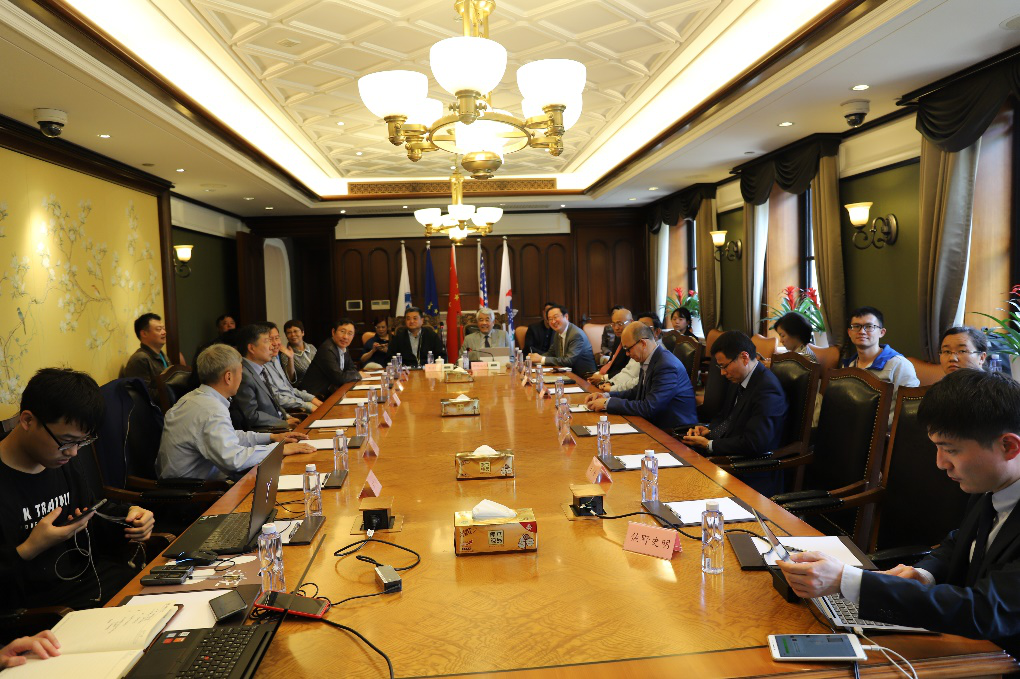
First of all, Mr. Dedi Liren delivered a speech on the topic of "Comparison of trade frictions between China and the United States and Japan - Thinking about the future world economic, trade and financial order". Mr. Dedi expressed his views on the comparison of trade frictions between China and the United States and Japan, how to solve the trade frictions between China and the United States, why to establish a new international economic and financial order, and the reform of the WTO and the international financial system.
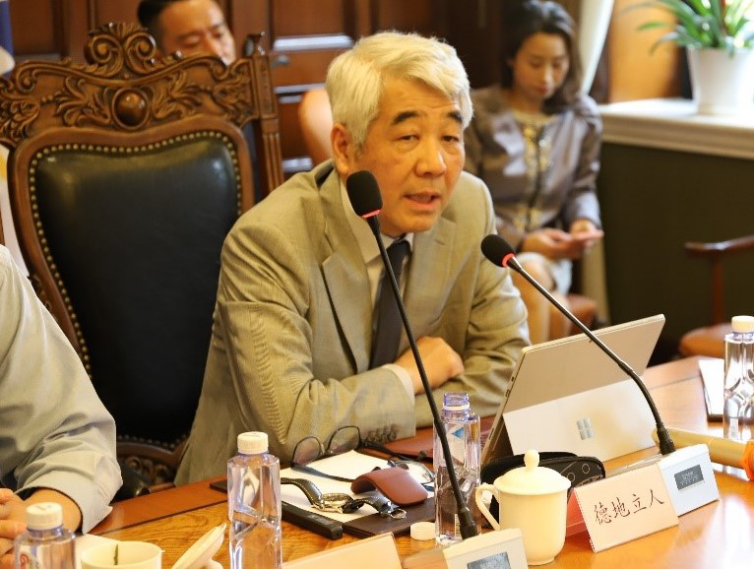
Mr. Tokuchi pointed out that the friction between China and the United States has many similarities in terms of economic scale, huge current balance surplus, the way the United States exerts pressure and the way it solves problems. However, since Japan and the United States have a security alliance, while China and the United States have no such relationship, we must control the development of trade frictions. He referred to the issue of emotions between the two countries and said that we should pay attention to the impact of bilateral emotions on this trade friction. Regarding the reason for establishing a new international economic and financial order, Mr. Dedi believed that it was caused by the rapid changes in the world pattern (including the rise of China, the development of the fourth industrial revolution, etc.), which brought about two problems: global polarization and cyclical financial crisis. In terms of the reform of the WTO and the international financial system, he said that the floating exchange rate system based on the US dollar was generally reasonable. The current international monetary system and organizational form were still relatively effective, and whether the system could play its role depended on the concerted efforts of all countries. He believed that China had done a good job in domestic balance, but not enough in external balance, which was one of the main reasons for this trade friction. China's long-term adoption of the fixed exchange rate policy has resulted in a large current-account surplus, which should be improved. Finally, he expressed confidence that China would play a huge role in the reform of the international financial system.

Later, Professor Zha Daojiong made comments. Professor Zha shared his two feelings. First, Mr. Dedi's view that it is very important to understand the dispute from the institutional factors and take measures from the institutional construction in the future is also the focus that people often ignore. Second, the emotional issue raised by Mr. Dedi is very important. The events of obedience and irreverence during Japan US trade frictions fully illustrate the seriousness of the deterioration of emotions, and efforts should be made to avoid the deterioration of emotions on both sides.
Finally, Professor Xu Jilin and Mr. Jia Hao elaborated their views on Sino US trade frictions in terms of institutional analysis and ideological analysis. Professor Guan Jianqiang and Professor Gao Quanxi expressed their views on Sino US trade friction and Huawei incident from the perspective of international law.

